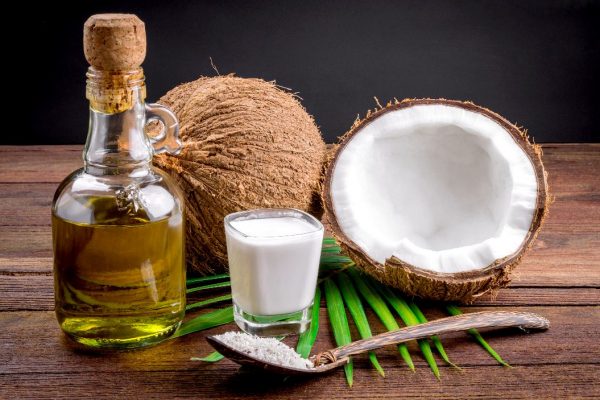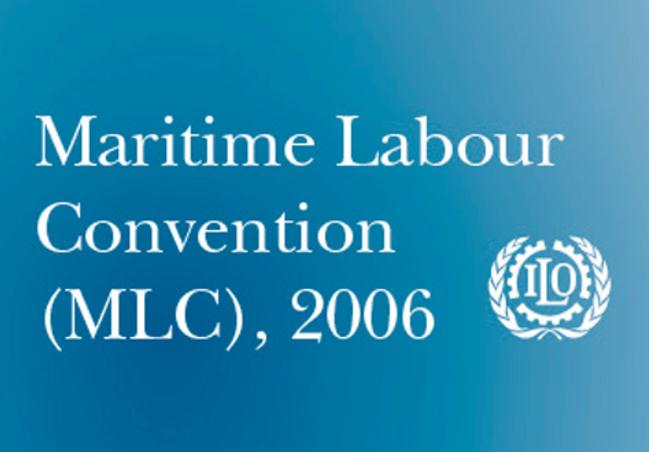How To Export Virgin Coconut Oil To Europe
Shippers Guide is the learning page of MMS Plus. Here we answer the five W’s and H of several issues in the shipping industry. This week’s edition teaches the basic requirements for exporting virgin coconut oil to Europe.
The European market for virgin coconut oil has grown significantly over the last years. This is mainly because of growing consumer attention to healthier diets. Initially, virgin coconut oil was only available at health shops. Virgin coconut oil has now become popular in mainstream supermarkets and its industrial applications are growing.
1 . Product description
Virgin coconut oil is obtained by pressing the fresh meat of the coconut (Cocos nucifera L.). It is extracted by a mechanical process without chemical changes. The oil remains in its most natural form. In this form it retains the smell and taste of coconut as well as its high content of vitamin-E, minerals and healthy medium chain fatty acids.
Virgin coconut oil has no trans-fatty acids and has a high level of lauric acids (about 50%). It is also low in polyunsaturated fatty acids (PFAs) compared to oils such as soy and groundnut oils. Virgin coconut oil can be used as a spread, a cooking oil and food ingredient. While this factsheet only covers the food market, virgin coconut oil is also used in the cosmetics industry.
Quality
Virgin coconut oil is derived from the fresh and mature kernel (flesh) of the coconut. The coconut must be at the right ripeness (partially or completely brown) and free from metals, dirt and other foreign material before it is processed.
The oil should be colourless, sediment free, with natural fresh coconut scent and free from rancid odours or tastes. It cannot undergo chemical refining, bleaching or de-odorising processes. Good quality virgin coconut oil should taste and smell like coconut and should easily melt.
Buyers will look at two main factors to determine the quality of your product: 1) moisture content, which should not exceed 0.5%; 2) lauric acid content, which should range between 45 and 50%.
The oil is ideally produced within 48 hours after harvesting in order to safeguard freshness. Quality is highest if the oil is extracted from the first pressing of the coconut. Virgin coconut oil can also be centrifuged at 8,000 rpm to separate the oil from any left-over solids and to increase the quality of your product.
Storage is also crucial to keep high quality. Virgin coconut oil should be stored at room temperature and protected from light.
Labelling
Use English for labelling purposes, unless your buyer indicates otherwise. Include the following for bulk packaging:
- Product name: Virgin Coconut Oil
- Batch code
- Whether or not the product is destined for use in food products
- Declaration of allergenic substances
- Name and address of exporter
- Best-before date
- Net weight
- Recommended storage conditions
If your virgin coconut oil is packed for retail in the country of origin, you must follow the European legislation covering food information to consumers. Consumer labels must also include the following:
- Name of product: Virgin Coconut Oil
- List of ingredients, including allergens
- Nutrition information
- Quantity / categories of ingredients
- Net quantity
- Date: minimum storage life
- Special storage conditions / conditions for use
- Business name and address
- Particulars of origin
- Instructions for usage
- If your product is organic, it must contain the name / code of the certifying body, the certification number and the European Union’s organic logo.
Packaging
Bulk packaging
Virgin coconut oil is transported mainly in steel drums (example: 200 litres) or high-density polyethylene (HDPE) drums (example: 20 litres). But buyers might have specific packaging requirements.
Organic Virgin Coconut Oil should remain physically separated from other oils.
Ensure preservation of quality by:
- Cleaning and drying the drums before loading the oil;
- not loading rancid virgin coconut oil;
- filling the drums as fully as possible to avoid ventilation and light (this will prevent rancidity);
- not subjecting the oil to heat or sunlight to prevent alterations in quality;
- avoiding solidification by ensuring appropriate temperature control during loading, travel and pumping.
Which European markets offer opportunities for exporters of virgin coconut oil?
Extraction of virgin coconut oil usually takes place in tropical regions where coconuts are produced. The product is not produced in Europe, which makes Europe completely dependent on imports. The growth in global and European demand, combined with stagnation in coconut production, causes concerns on the future availability of the raw material.
Data for European imports and consumption of virgin coconut oil are limited. The product does not have its specific HS code, nor is it closely monitored in terms of retail sales. Different information sources were used to get an indication of European demand for this oil:
- European sales of virgin coconut oil have experienced a booming growth since 2013, according to industry sources. For example, BodybuildingWarehouse.co.uk(British web shop), reported a 67% increase in sales of its organic virgin coconut oil in the first 3 months of 2015 alone.
- However, the European market has started to stabilize in 2016. While the booming growth of virgin coconut oil is fading, the market is still increasing and expanding to industrial applications. This will allow you to continue exploring opportunities on the European market and to fine-tune your access strategy. For example, direct trade with manufacturers might be possible for some suppliers.
- Figures from producing countries indicate that Europe lags behind North America as a destination for virgin coconut oil exports. Within Europe, Germany, the Netherlands, the United Kingdom, Belgium and Sweden are the main importing markets.
- The Philippines and Sri Lanka are the largest exporters of virgin coconut oil to Europe. Other supplying countries can be found on the website of the Asian and Pacific Coconut Community (APCC). This association represents over 90% of the global coconut production and exports.
- In 2015, the main destinations in Europe for the Philippines were: the Netherlands (9%), Germany (8%), Belgium (2%) and the United Kingdom (2%). Apart from Europe, exports from the Philippines were directed to the United States (59%), Canada (8%) and Japan (4%).
- Sri Lankan exports to Europe in 2015 were concentrated in a few countries: Germany (10%), the United Kingdom (7%), the Netherlands (4%) and Sweden (3%). The largest markets outside of Europe were the United States (41%), Japan (12%), Australia (12%) and Canada (3%).
Which trends offer opportunities on the European market for virgin coconut oil?
Shift to healthier vegetable oils
Europeans are paying more attention to the link between diet and health. This has led to a growth in demand for healthier foods, including vegetable oils. Virgin coconut oil has a great appeal in this market: it does not contain trans-fatty acids, it has a high level of lauric acid and is not refined. As such, the product has become one of the iconic products of the health and wellness trend on the European market.
While recent studies show that sunflower oil releases significant concentrations of toxic chemicals when heated for long periods, coconut oil shows some of the lowest levels. This information was published in mainstream media. These studies have a significant influence on consumer choices.
Increasing use of virgin coconut oil by the European food industry
The market for virgin coconut oil in Europe is expanding from direct consumption to industrial uses. The health & wellness trend has led the European food industry to start using the oil in high-end products.
At the moment, the main industrial application for virgin coconut oil is in premium health snacks. Some products on the European market containing virgin coconut oil are:
- The Get Fruity Bar (United Kingdom)
- Bio Paranuss-Guarana Riegel (Germany)
- Lifefood Coconut Bar (Germany/Europe)
Which requirements should virgin coconut oil comply with to be allowed on the European market?
Buyers in the European Union have strict requirements for virgin coconut oil. You will only be able to successfully market your product in Europe when you comply with these requirements. See our study on buyer requirements for vegetable oils for a detailed analysis of these requirements. It deals with the following topics:
Legal requirements
If you do not comply with the regulation on the following issues, you will not be able to export to Europe:
- Traceability, hygiene and control
- Contamination (think about fungus contamination and other sources during your production process)
- Erucic acid content (not highly relevant for virgin coconut oil)
- Extraction solvents (should not be used for virgin coconut oil)
- Product composition
- Labelling, including allergens and nutrition & health claims
- Food contact materials
Additional requirements
Complying with the following standards can be essential in accessing specific market segments and buyers in Europe:
- Food Safety Certification: especially for virgin coconut oil, certificates such as IFS or BRC might be required by some buyers.
- Corporate responsibility and sustainable sourcing: being a specialty product, sustainability plays an important role for virgin coconut oil; sustainability projects dealing with coconut-producing communities and ecological aspects can serve as a competitive advantage for you. They are also an interesting strategy to differentiate yourself from other suppliers. Organic certification is likely to be an extra selling point for you or even a demand from your buyer. Fair trade certification may also complement the sustainability package of your product, but it is not as common. Both options are described below.
Requirements for niche markets
Organic certification
Organic is a niche market in Europe, but organic certification is important for virgin coconut oil. The product was mainly sold through health shops some years ago, and these shops often sell certified products. The rules for organic certification should follow those described in our study on buyer requirements for vegetable oils.
Fair trade certification
Consumers are increasingly aware of social responsibility and want to know how and where their product is produced. This has had a positive impact on the sales of fair trade-certified products. However, the number of fair trade-certified companies marketing virgin coconut oil in Europe remains limited. This reflects the overall fair trade market, which remains concentrated in specific countries in Western Europe (especially the United Kingdom and Switzerland). Virgin coconut oil can also carry a double certification “organic + fair trade”.
FLO-Cert is the leading standard-setting and certification organization for fair trade. FLO does not have a specified minimum price and premium for virgin coconut oil, only for coconuts. A few operators worldwide also hold Fair for Life or Ecocert Fair Trade certifications.
Through which channels can you get virgin coconut oil on the European market?
Market segments
Virgin coconut oil for edible uses has two distinct market segments: the consumer market and the food industry.
The consumer market is the largest market segment. This is where the oil is packed for direct consumption as cooking oil and butter. The product was initially available through health shops, but nowadays most mainstream supermarkets in Western Europe have virgin coconut oil in their assortment.
In the food industry, virgin coconut oil is increasingly used as an ingredient in health snacks and food supplements. Examples of these products are given in the trends section of this document.
Apart from the food market, virgin coconut oil is also used in cosmetics (anti-ageing creams, lip gel, make-up remover), luxury soaps and other industrial applications. However, this factsheet does not cover cosmetic products.
Virgin coconut oil is a specialty oil and is traded in much smaller volumes than commodity oils such as conventional coconut oil and sunflower oil. It does not go through a refining process either.
Importing companies are the main point of entry for virgin coconut oil into Europe. There are a number of companies in the main virgin coconut oil-importing countries such as Germany, the Netherlands and the UK. Some of these importers also filter and bottle the product for the consumer market. Other importers intermediate the contact between exporters and end buyers, also providing services such as storage, financing and quality control.
With the expansion of the industrial market for virgin coconut oil in Europe, it is expected that the direct contact between manufacturers and producers/exporters will increase.
Copyright MMS Plus.
All rights reserved. This material, and other digital content on this website, may not be reproduced, published, broadcast, rewritten or redistributed in whole or in part without prior express written permission from KINGS COMMUNICATIONS LIMITED.








